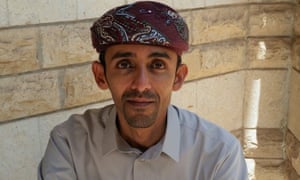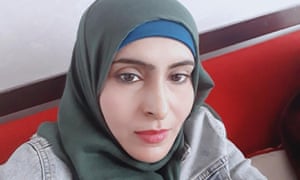Originally published on the Guardian website, by Bethan McKernan, 26 Mar 2019
As the civil war enters its fifth year, activists talk about their work to hold Yemen together
Yemen is marking a grim anniversary this week: it has been four years since a western-backed military coalition led by Saudi Arabia intervened in its civil war, a move which has led to the deaths of at least 60,000 people and caused the world’s biggest humanitarian crisis.
As the conflict enters its fifth year, diplomats are struggling to rescue a three-month-old ceasefire which has been threatened by heavy fighting in the cities of Hodeidah and Taiz between rebel Houthis and forces loyal to Yemen’s government. At the start of the rainy season, the UN has warned of a sharp spike in cholera cases.
Many Yemenis speak with anger at the international community’s inability to broker a political solution to the conflict, which began in the aftermath of the Arab spring. But the thousands of people who took to the streets in 2011 in peaceful protests – among them human rights activists, students, journalists, doctors, teachers and development workers – are still working hard to keep their country together and maintain hope for a better future.
Hisham al-Omeisy, human rights activist

Omeisy, one of Yemen’s most prominent political analysts and activists, had long been a rare voice on the ground, unafraid of criticising both sides in order to bring the conflict to the outside world.
Since his release he has continued to raise the profile of other Yemeni prisoners of conscience, push for a political solution to the conflict and work on breaking down the stigma of mental illness and post-traumatic stress disorder.
“It is difficult and dangerous to be independent anywhere, but especially in Yemen,” he said. “I was warned: ‘If you keep stepping on people’s toes, no one will be able to defend you if you get into trouble.’ But the tradeoff for that is that I would lose my credibility, and I refuse to do that. We can’t afford to give up.”
Fatima, aid worker
Fatima, who asked the Guardian not to use her real name to protect her organisation’s work, works on food distribution programmes in Houthi-held Saada province, where a coalition airstrike hit a school bus last August, killing 40 children and 11 adults.
“The work is very difficult. Many tribal communities are afraid to give location coordinates because they think the coalition will use it to target them,” she said.
“What gives me hope is seeing the impact we have. We help people get back on their feet with work programmes and they tell me they feel like they have their dignity back.”
Fatima is a divorced single mother, which she says makes her life more complicated in the deeply conservative country. “I could leave. But if I run away, then who will stay? In the end it is men who created this war. I work with lots of inspiring women. This is our chance to show that women can make the decisions, we can make things better. I am proving that to myself and to society.”
Jaclin al-Batani, university lecturer and political activist

Jaclin al-Batani, from Yemen’s south, teaches English at Aden University and is a member of the Southern Transitional Council (STC), a movement seeking renewed independence for the south of the country.
Her work focuses on social affairs projects designed to help low-income families and women who have lost their husbands and sons in the war start their own small businesses such as tailoring.
She says the war has taken a huge toll on Yemen – but it has also allowed people in the south, who have long felt marginalised by the government, to become active in the political process.
“I keep politics out of my classroom but my students are aware they are the future for Aden and the rest of Yemen. Teaching them is a delight. It gives me so much satisfaction.”
… and we want to tell you about it. We made a choice which means our journalism now reaches record numbers around the world and more than a million people have supported our reporting. We continue to face financial challenges but, unlike many news organisations, we have chosen not to put up a paywall. We want our journalism to remain accessible to all, regardless of where they live or what they can afford.
This is The Guardian’s model for open, independent journalism: available for everyone, funded by our readers. We depend on contributions from our readers. Will you support our choice?
Readers’ support powers our work, safeguarding our essential editorial independence. This means the responsibility of protecting independent journalism is shared, enabling us all to feel empowered to bring about real change in the world. Your support gives Guardian journalists the time, space and freedom to report with tenacity and rigour, to shed light where others won’t. It emboldens us to challenge authority and question the status quo. And by keeping all of our journalism free and open to all, we can foster inclusivity, diversity, make space for debate, inspire conversation – so more people have access to accurate information with integrity at its heart.
Guardian journalism is rooted in facts with a progressive perspective on the world. We are editorially independent, meaning we set our own agenda. Our journalism is free from commercial bias and not influenced by billionaire owners, politicians or shareholders. No one steers our opinion. At a time when there are so few sources of information you can really trust, this is vital as it enables us to give a voice to those less heard, challenge the powerful and hold them to account. Your support means we can keep investigating and exploring the critical issues of our time.
Our model allows people to support us in a way that works for them. Every time a reader like you makes a contribution to The Guardian, no matter how big or small, it goes directly into funding our journalism. But we need to build on this support for the years ahead.
Link to the original post:
https://www.theguardian.com/world/2019/mar/26/we-cant-afford-to-give-up-the-yemenis-keeping-hope-alive


